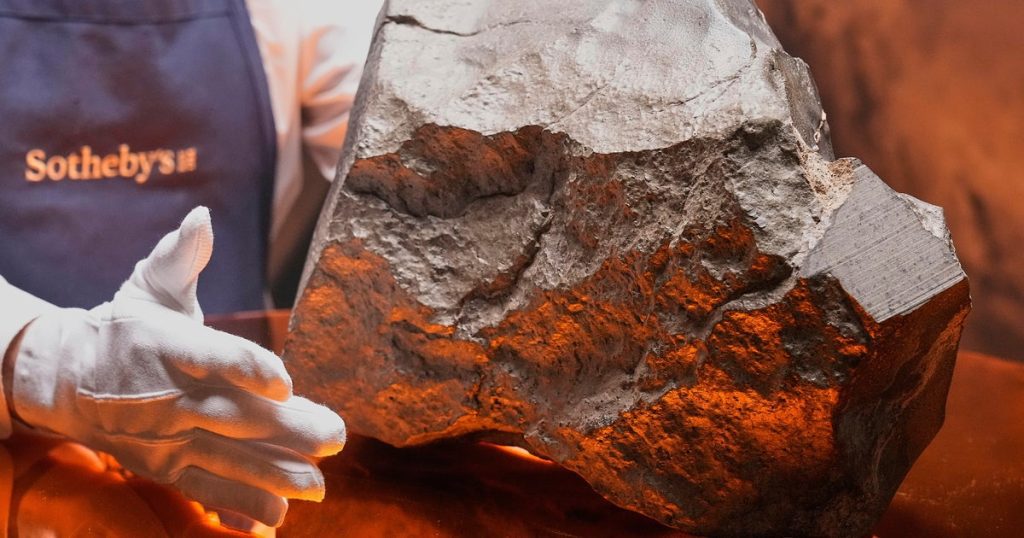Recently auctioned for over $5 million in New York, the largest piece of Mars ever found on Earth, weighing 54 pounds, set a new world record.
However, Niger, where the meteorite was discovered in the Sahara Desert, has initiated an investigation into potential “illicit international trafficking,” suggesting it may have been smuggled out of the country. The auction house Sotheby’s rejects these allegations.
The Nigerian government is probing the “circumstances of its discovery and sale,” noting the absence of specific meteorite laws, though they are considering international heritage legislation.
Discovery of the Meteorite
Sotheby’s explained that the meteorite, designated NWA 16788, was ejected from the surface of Mars by an asteroid strike and traveled 140 million miles to reach Earth.
Cassandra Hatton, Sotheby’s vice chairman of science and natural history, remarked that “the odds of this getting from there to here are astronomically small.” The meteorite was found in November 2023 by an unidentified individual in northwestern Niger.
Meteorite hunting is increasingly popular in arid regions like Niger, as the Sahara provides optimal conditions for preservation. The rarest meteorites, particularly those from Mars and the Moon, attract collectors and scientists alike.
Legal Implications for Niger
After the sale, Niger raised concerns about the auction process. The government announced an investigation, describing the situation as similar to “illicit international trafficking.” In response, President Abdourahamane Tiani has suspended exports of “precious stones, semi-precious stones, and meteorites” to ensure proper traceability.
Sotheby’s, known for auctioning meteorites, maintains that the specimen was exported and handled according to all relevant international protocols, asserting that “all necessary documentation was in order.”
International Law Context
Though international treaties exist to regulate cultural artifact trade, the status of meteorites remains ambiguous. Patty Gerstenblith, a legal expert, stated that under the UNESCO convention, meteorites could be classified as cultural property. However, Niger must demonstrate ownership and that it was unlawfully removed for any chance of recovery.
Countries like Morocco require the return of meteorites discovered within their borders, but enforcing these claims can be challenging due to the vast deserts and informal trading networks.



